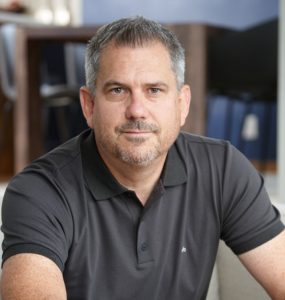I recently attended TD Ameritrade’s National LINC conference in San Diego. The conference is held for independent Registered Investment Advisors to learn about the latest industry trends and to be inspired by other like-minded advisors. The conference is held in San Diego, California, and bedsides the wonderful weather, I always look forward to the keynote speakers. This year did not disappoint.
I heard a fantastic speech from David Cameron, the former Prime Minister of the UK. Cameron discussed the departure of the United Kingdom from the European Union (Brexit) and it’s effect on the UK, the US, and the world economy. Tim Hockey, the President and CEO of TD Ameritrade gave a stand-out talk discussing the TD Ameritrade merger with Scottrade. And I heard from Lisa Bodell, the author of Why Simple Wins: Escape the Complexity Trap and Get to Work That Matters.
Bodell’s talk started with a discussion of the Office of Strategic Services (OSS), an organization that was formed during World War II and was the forerunner to today’s CIA. The main goal of the OSS was to bring down the Nazi regime. Initially, the OSS strategy was to demoralize the members of the regime by dropping pamphlets full of propaganda and misinformation from the sky. The goal was to destroy the Nazi regime from within. Pamphlet dropping was not terribly effective because many of the papers did not reach the ground, they blew away or were destroyed by the weather.
So the OSS tried a new strategy: to cripple the Nazi regime from within. Their insidious tactics needed to be subtle and undetectable—so underhanded that they would be difficult to identify. Here are some of the tactics they used:
- Insist on doing everything through “channels.” Never permit short-cuts to be taken in order to expedite decisions.
- Make “speeches.” Talk as frequently as possible and at great length. Illustrate your “points” by long anecdotes and accounts of personal experiences.
- When possible, refer all matters to committees, for “further study and consideration.” Attempt to make the committee as large as possible—never less than five.
- Haggle over precise wordings of communications, minutes, and resolutions.
- Refer back to matters decided upon at the last meeting and attempt to re-open the question of the advisability of that decision.
Do any of these look familiar? It’s interesting that some of these tactics are used in our organizations today, without the intent to sabotage. These productivity-sucking methods are inadvertently in play in our every day interactions. They have a gradual and cumulative affect on the effectiveness of our organizations.
About Christopher Jones
Christopher Jones is the Founder and President of Sparrow Wealth Management, a fee-only financial planning and investment management firm. Before entering the investment field, Chris was a management consultant for Deloitte Monitor. He graduated summa cum laude from Brigham Young University with a B.S. in Economics and a minor in Business Management.


